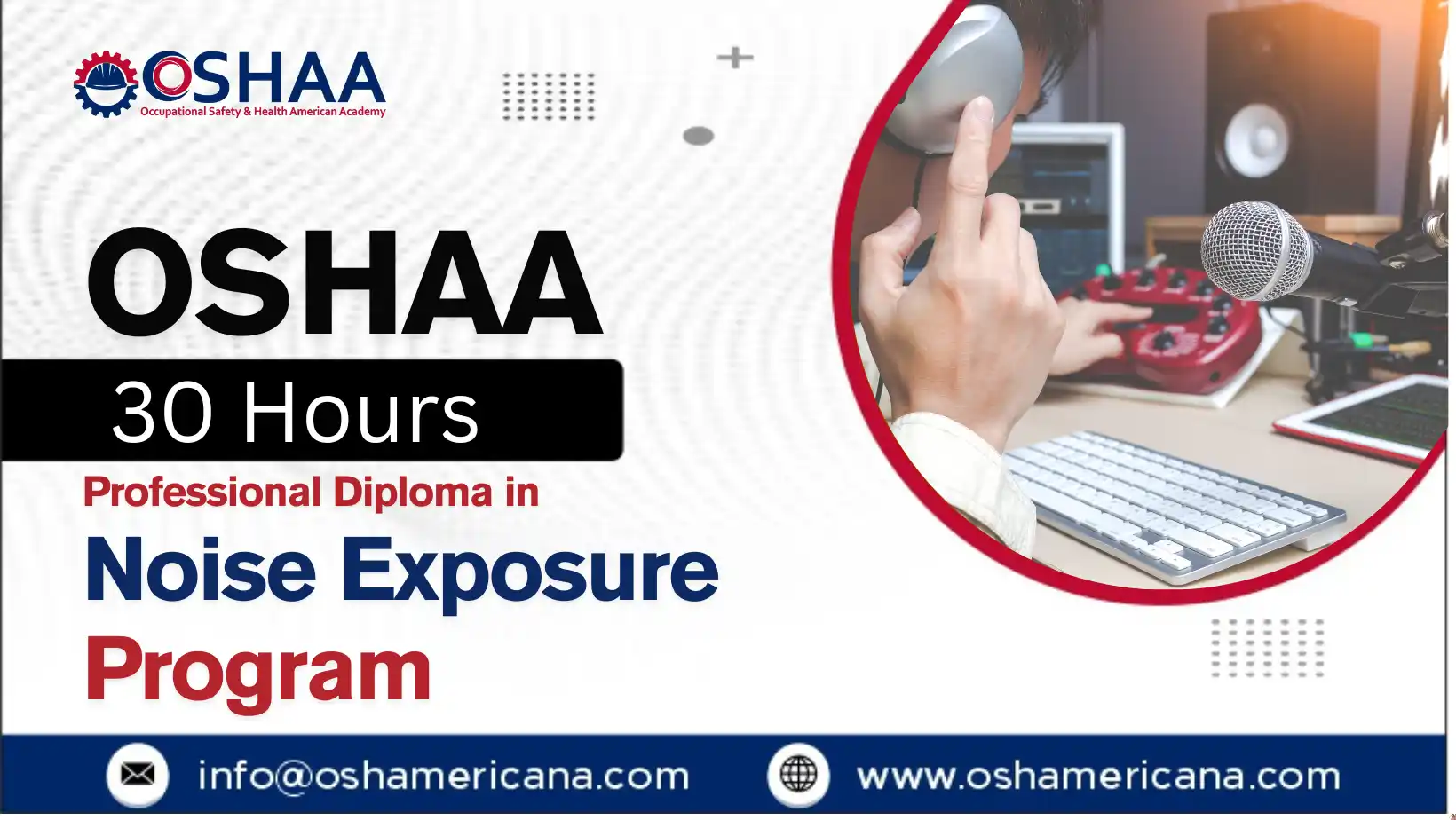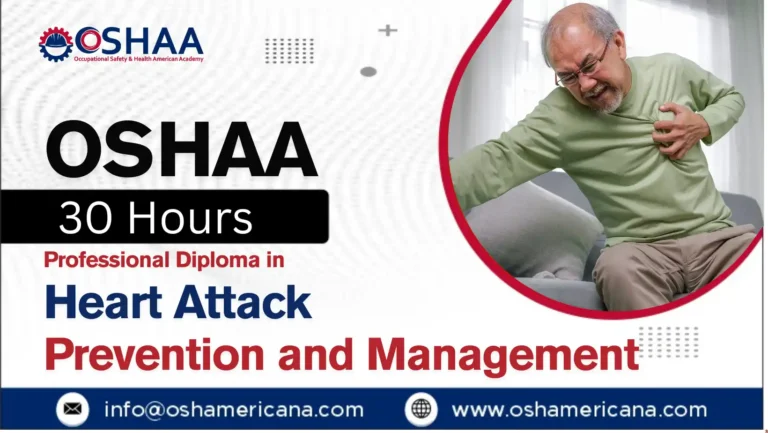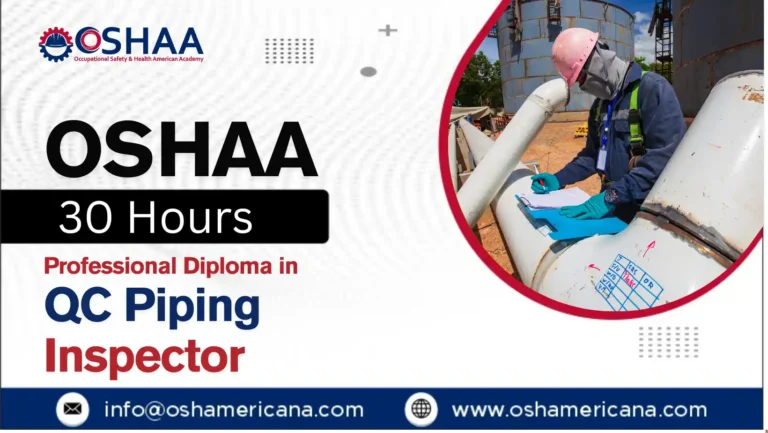Master Noise Risk Management with Professional Diploma
Occupational noise exposure remains one of the most overlooked yet hazardous risks in many industries. The OSHAA 30-Hours Professional Diploma in Noise Exposure Program is specifically designed to address this challenge by equipping participants with the knowledge and practical skills to assess, control and manage noise hazards effectively in the workplace. Delivered in alignment with UK occupational health standards, this comprehensive diploma provides a structured approach to hearing conservation and noise risk mitigation.
This course explores the fundamentals of noise exposure, from understanding sound measurement and regulatory compliance to implementing hearing conservation strategies and evaluating personal protective equipment. Whether working in construction, manufacturing, aviation, healthcare, or entertainment sectors, participants will learn how to apply risk assessment methodologies and contribute to creating safer, acoustically balanced environments.
The curriculum incorporates case-based learning, real-world risk scenarios and interactive content that enhances professional development. Participants will gain a strong understanding of the legal duties of employers, current occupational exposure limits, and the importance of proactive monitoring and training programmes.
Completing this diploma not only strengthens workplace safety knowledge but also enhances the ability to design, evaluate, and promote long-term noise control strategies. The course is ideal for those responsible for occupational health, safety, and environmental compliance, and it provides an excellent foundation for those aiming to specialise in auditory risk prevention or noise management.
OSHAA 30-Hours Professional Diploma in Noise Exposure Program
Study Units
Learning Outcomes
Introduction to Occupational Noise and Hearing Loss (3 Hours)
- Understand the impact of noise exposure on hearing and overall health
- Identify types and sources of occupational noise
- Recognise early signs and long-term effects of hearing loss
- Explore the consequences of prolonged noise exposure in the workplace
- Promote awareness of hearing protection and occupational safety
Fundamentals of Sound Measurement and Acoustic Principles (3 Hours)
- Explain key acoustic concepts including decibels, frequency, and sound pressure levels
- Operate basic sound measurement equipment accurately
- Interpret sound measurement data to assess workplace noise levels
- Understand the science behind sound propagation and its effect on workers
- Apply acoustic principles to real-world occupational environments
Noise Regulations, Standards and Legal Responsibilities (4 Hours)
- Identify relevant UK and international noise exposure regulations
- Understand employer and employee responsibilities under the law
- Apply legal limits to occupational noise assessments
- Ensure compliance with health and safety legislation
- Support a culture of legal and safe noise management in the workplace
Conducting Noise Risk Assessments and Exposure Monitoring (4 Hours)
- Plan and conduct systematic noise risk assessments
- Use appropriate tools to monitor and record noise exposure
- Analyse assessment results to prioritise control measures
- Identify high-risk areas and implement corrective actions
- Maintain accurate records to support ongoing noise management
Hearing Conservation Programmes: Planning and Implementation (5 Hours)
- Design and implement a comprehensive hearing conservation programme
- Monitor the effectiveness of noise control strategies over time
- Promote awareness and compliance among the workforce
- Integrate training and communication strategies to support hearing protection
- Evaluate programme outcomes for continuous improvement
Engineering and Administrative Noise Control Measures (5 Hours)
- Evaluate common engineering solutions to reduce noise at the source
- Implement administrative strategies to minimise noise exposure duration
- Integrate noise control measures into daily operations and work practices
- Assess effectiveness of combined control methods
- Support a safer, quieter, and more productive workplace
Selection, Use and Maintenance of Hearing Protection Devices (3 Hours)
- Identify different types of hearing protection and their suitable applications
- Ensure correct usage, fitting, and care of protective devices
- Educate workers on proper selection, limitations, and maintenance of hearing protection
- Promote consistent use of PPE to prevent hearing damage
- Maintain a professional standard for hearing safety practices
Health Surveillance and Audiometric Testing Protocols (3 Hours)
- Understand the role of audiometry in occupational health
- Conduct and interpret baseline and periodic hearing tests
- Maintain confidential and compliant health surveillance records
- Identify early signs of noise-induced hearing loss for intervention
- Support a proactive hearing conservation culture in the workplace
Course Benefits – OSHAA 30-Hours Professional Diploma in Noise Exposure Program
- Equips participants with specialised knowledge in identifying, evaluating, and managing workplace noise hazards.
- Enhances understanding of UK and international noise exposure regulations and legal compliance requirements.
- Provides practical skills in conducting noise risk assessments and implementing hearing conservation programmes.
- Promotes the application of effective engineering and administrative noise control strategies.
- Builds competence in the selection, usage, and maintenance of hearing protection devices.
- Improves participant ability to plan and deliver workplace health surveillance and audiometric testing.
- Supports the creation of safer work environments by reducing occupational noise risks.
- Empowers participants to contribute meaningfully to health and safety teams within industrial, construction, and manufacturing sectors.
- Strengthens CVs and professional credibility in occupational health and safety roles.
- Prepares participants for advisory responsibilities in hearing conservation and workplace health programmes.
This course is designed for participants working in environments where occupational noise is a significant health and safety concern. It is especially suitable for:
- Health and safety officers and workplace safety supervisors
- Occupational health professionals seeking to enhance their knowledge in noise risk management
- Facilities and operations managers in industrial, construction, manufacturing, or logistics settings
- Environmental health practitioners and compliance officers
- HR professionals involved in employee wellbeing and workplace safety programmes
- Individuals preparing for roles in occupational safety and health with a focus on noise control
- Anyone responsible for implementing hearing conservation initiatives and maintaining regulatory compliance in the workplace
This diploma provides participants with the specialised skills and regulatory awareness needed to manage noise hazards effectively and ensure a safer auditory environment for all personnel.







